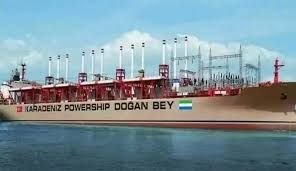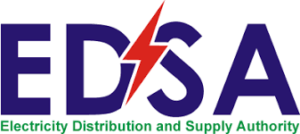Physical Address
304 North Cardinal St.
Dorchester Center, MA 02124
Physical Address
304 North Cardinal St.
Dorchester Center, MA 02124

Editorial: A Thorn in the Flesh…
We applaud President Bio and his administration for their ongoing commitment to reform Sierra Leone’s energy sector. Their efforts signal a strong desire to address the nation’s long-standing power challenges.
However, despite these reforms, deeply rooted issues remain—none more damaging than corruption. This vice continues to act as a major barrier, with some individuals within the system deliberately undermining progress for personal benefit by diverting essential resources. Such mismanagement not only hampers sector growth but also burdens ordinary citizens. Though many pay their electricity bills faithfully, the funds collected often fail to cover operational costs—especially payments to power providers like Karpowership.
On several occasions, Karpowership has either halted or threatened to stop operations due to unpaid bills. These incidents highlight the urgent need for transparency and accountability in the system. For the government’s energy agenda to succeed, it must confront corruption head-on and ensure that public funds are used effectively. Only then can Sierra Leone experience reliable and consistent electricity.
The sharp decline in power supply remains a national concern. It too stems from the corruption plaguing the sector. It is troubling that, in this modern age, many parts of Freetown and the provinces still lack dependable power—especially when neighboring Guinea can meet its own needs and still export surplus electricity.
Further compounding the crisis is the delayed completion of Phase Two of the Bumbuna Hydroelectric Project, a critical infrastructure asset that, if completed, would boost both energy generation and distribution.
While the government continues to promise action, the public awaits visible progress. Statements about ongoing negotiations with energy experts raise hope, but these must quickly evolve into tangible results.
Another challenge is Sierra Leone’s overreliance on Karpowership. The government must explore and invest in a sustainable Plan B. Current costs could, by some estimates, finance the country’s own power barge—making the contract both unsustainable and economically questionable.
Moreover, illegal activities within the sector—such as the theft and diversion of electricity—continue to worsen the crisis. These acts of sabotage must be addressed firmly and immediately.
Aging infrastructure further complicates the problem. If Sierra Leone is to move forward, modernizing the entire electricity network must be a top priority. A reliable system will not only boost energy supply but also enhance investor confidence.
In conclusion, while the government’s commitment to reform is commendable, it must now be matched with decisive action. Reform alone is not enough—transparency, accountability, and strong partnerships are needed to break free from these long-standing limitations.
Electricity is vital to every aspect of national life—from healthcare and education to agriculture and industry. We cannot afford to let this crisis persist.
We urge the government to act boldly. Only through honest leadership, strategic investment, and private sector collaboration can Sierra Leone light the way to a more sustainable and prosperous energy future.

